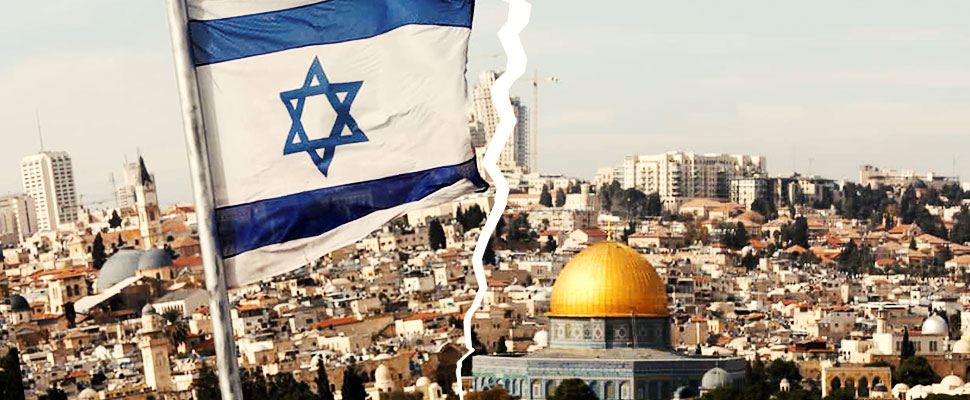Why does the recognition of Jerusalem as capital of Israel divide the world?
In addition to the United States, several countries have announced the transfer of their embassies to Jerusalem, including three Latin American countries

The State of Israel does not go unnoticed in the world. Since its creation in 1948 the positions around its decisions have always been controversial, especially in relation to its relations with the Arab countries. With Benjamin Netanyahu's government and Donald Trump's arrival in power, the country has found a window of opportunity to lead a bolder foreign policy, taking advantage of US support.
Leer en español: ¿Por qué divide al mundo el reconocimiento de Jerusalén como capital israelí?
Israel's political and geographical situation is not simple, as it is surrounded by nations that are hostile to it, specifically the Arab countries and others with a Muslim majority. With these countries it has had serious episodes of war, such as those that occurred in 1948 with the creation of the country, in 1967 with the so-called Six-Day War and in 1973 with the Yom Kippur War. In these conflicts, Israel used its military potential, which has been developing throughout the second half of the 20th century. With its military development it had the tools to defeat its neighbors with adverse consequences for the entire Middle East.
The harshness with which Israel has responded to the attacks has generated similar reactions from terrorist groups that threaten their security, which is why it has established strict walls and controls that its neighbors consider aggressions. Of the Arab League, 18 of its 21 members do not recognize or have relations with the State of Israel, as do members of the Organization for Islamic Cooperation (who are not Arabs) such as Iran. This hinders the country's relationship with its region, having sporadic diplomatic relations with some States.
In December 2017, Israel's decision to declare Jerusalem in its entirety as a capital aroused great turmoil in the world. At the UN a motion was voted against that decision, and those who have friendly relations with Israel decided to abstain. A total of 35 countries did so, mostly from Latin America and the Caribbean. In this list were Mexico, Argentina, Panama, Haiti, Jamaica and even Paraguay, which was the most recent country to announce the transfer of its embassy to Jerusalem. In favor of the motion (against Israel's decision) 128 countries voted, among them Chile, Brazil, Cuba, Ecuador, Costa Rica, Uruguay, Venezuela, Nicaragua and Peru by Latin America. Finally, against the motion (in favor of the Israeli decision) 9 countries voted, including the United States and Israel, and only two Latin American countries: Guatemala and Honduras, which have already announced the transfer of their embassies.
The countries that abstained and those that voted against the motion expect Israel to agree to reach a solution to the conflict and to recognize that Jerusalem has a special status, as it is a sacred place not only for Jews, but also for Muslims and Catholics. Unilaterally declaring that Jerusalem is its capital has awakened voices of violence in the region, so we have to wait if the next U.S. government maintains this support, which even before Trump had been careful on that issue. Barack Obama took special care, especially when Israel declared legal settlements on Palestinian land, which the same former president rejected.
In Latin America, Guatemala, Honduras and now Paraguay have already announced the relocation of embassies. However, the other Latin American countries have been cautious and the world follows the same trend. Beyond the countries that voted in December in favor of Israel, few openly plan to follow the United States, including Romania and the Czech Republic, members of the European Union. The strategic importance of Israel in the military, economic and cultural field makes others think about the convenience of following the same steps, especially with Trump's policy of "if you are not with me, you are against me".
Latin American Post | Luis Angel Hernández Liborio
Translated from "¿Por qué divide al mundo el reconocimiento de Jerusalén como capital israelí?"





